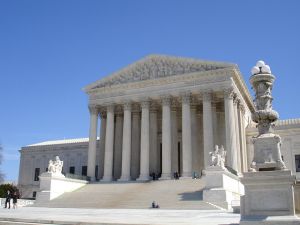 This month, the abrupt closing of four Tennessee pain management clinics under investigation for state and federal health insurance fraud made headlines. Those clinics, formerly affiliated with PainMD and rebranded as Rinova, closed last week. Federal authorities alleged that PainMD and its parent company inflated profits by providing patients with unnecessary injections to be paid by federal health insurance programs. Authorities of the state of Tennessee initiated their own investigation, with concerns that the conduct of clinic personnel may violate state law.
This month, the abrupt closing of four Tennessee pain management clinics under investigation for state and federal health insurance fraud made headlines. Those clinics, formerly affiliated with PainMD and rebranded as Rinova, closed last week. Federal authorities alleged that PainMD and its parent company inflated profits by providing patients with unnecessary injections to be paid by federal health insurance programs. Authorities of the state of Tennessee initiated their own investigation, with concerns that the conduct of clinic personnel may violate state law.
Georgia Pain Management and DEA Defense Law Firm
In the PainMD pain clinic investigations, not only were the companies and clinic administrators at risk for financial penalties and reputational harm in connection with potential fraud, but so were the health providers who worked at those clinics. Three PainMD nurses were indicted on federal charges in connection with procedures provided at the Tennessee clinics under investigation.
 Total Health Law Blog
Total Health Law Blog


 The exposure and concern surrounding the opioid epidemic is at an all time high. Notwithstanding the urgency of the issue itself, this publicity places increased pressure on the intervening parties—sub-agencies of the
The exposure and concern surrounding the opioid epidemic is at an all time high. Notwithstanding the urgency of the issue itself, this publicity places increased pressure on the intervening parties—sub-agencies of the  The highly anticipated “AseraCare” decision (United States v. GGSNC Admin. Serv. LLC) is still pending before the Eleventh Circuit Court of Appeals. The court is considering “whether a mere difference of opinion between physicians, without more, is enough to establish falsity under the False Claims Act.” To provide some context, the U.S. District Court evaluated the “falsity” element of the False Claims Act in the context of a hospice provider’s “clinical judgment” that a person meets the standard to be eligible for the Medicare Hospice Benefit. The requirement is that a patient be eligible for Medicare Part A and be “Terminally Ill” as defined by the regulation. “Terminally Ill” requires that the hospice Medical Director make a determination that the prognosis of the patient indicates a life expectancy of 6 months or less. So the issue is whether or not the “battle of expert opinion,” without some additional element, is enough to establish that a patient is not terminally ill rendering the subsequent Medicare reimbursement submissions false or fraudulent.
The highly anticipated “AseraCare” decision (United States v. GGSNC Admin. Serv. LLC) is still pending before the Eleventh Circuit Court of Appeals. The court is considering “whether a mere difference of opinion between physicians, without more, is enough to establish falsity under the False Claims Act.” To provide some context, the U.S. District Court evaluated the “falsity” element of the False Claims Act in the context of a hospice provider’s “clinical judgment” that a person meets the standard to be eligible for the Medicare Hospice Benefit. The requirement is that a patient be eligible for Medicare Part A and be “Terminally Ill” as defined by the regulation. “Terminally Ill” requires that the hospice Medical Director make a determination that the prognosis of the patient indicates a life expectancy of 6 months or less. So the issue is whether or not the “battle of expert opinion,” without some additional element, is enough to establish that a patient is not terminally ill rendering the subsequent Medicare reimbursement submissions false or fraudulent. Of the “fraud and abuse” laws, the three decades old Ethics in Patient Referrals Act, 42 U.S.C. § 1395nn, dubbed “Stark Law” after Congressmen Pete Stark who sponsored it, can often be the most challenging to properly interpret and apply, easily leading to head scratching. The law as originally enacted was simple in concept: to remove any financial motivation for doctors to send their patients for unnecessary testing that could raise health care costs and/or result in bad health care. Now often subject to much criticism and even calls for repeal, Stark Law’s is often viewed as confusing, which is ironic because Congressman Stark intended for the law to create “bright line” tests that would provide clear guidance to physicians about what self-referral arrangements are unlawful. Instead, the evolution of the law over the years, including implementing regulations, advisory opinions and court cases have rendered proper interpretation and application of the law debatable and unpredictable in some circumstances.
Of the “fraud and abuse” laws, the three decades old Ethics in Patient Referrals Act, 42 U.S.C. § 1395nn, dubbed “Stark Law” after Congressmen Pete Stark who sponsored it, can often be the most challenging to properly interpret and apply, easily leading to head scratching. The law as originally enacted was simple in concept: to remove any financial motivation for doctors to send their patients for unnecessary testing that could raise health care costs and/or result in bad health care. Now often subject to much criticism and even calls for repeal, Stark Law’s is often viewed as confusing, which is ironic because Congressman Stark intended for the law to create “bright line” tests that would provide clear guidance to physicians about what self-referral arrangements are unlawful. Instead, the evolution of the law over the years, including implementing regulations, advisory opinions and court cases have rendered proper interpretation and application of the law debatable and unpredictable in some circumstances. In our Georgia business and healthcare law firm, we have noticed that cases involving Medicare fraud and billing compliance issues are published on virtually a daily basis, underscoring the critical need that physicians, nurses and other care providers and billing professionals exercise caution and vigilance in billing Medicare or other third party payers. For example, last week in Dallas, Texas, two physicians and three nurses were sentenced to prison for submitting fraudulent claims to Medicare through a home healthcare agency. The financial harm and potential billing fraud and serious “zero tolerance policy” of the Office of the Inspector and Federal Government for Medicare fraud has enhanced the financial and legal risks to healthcare providers and billing companies for all billing discrepancies. The OIG published its
In our Georgia business and healthcare law firm, we have noticed that cases involving Medicare fraud and billing compliance issues are published on virtually a daily basis, underscoring the critical need that physicians, nurses and other care providers and billing professionals exercise caution and vigilance in billing Medicare or other third party payers. For example, last week in Dallas, Texas, two physicians and three nurses were sentenced to prison for submitting fraudulent claims to Medicare through a home healthcare agency. The financial harm and potential billing fraud and serious “zero tolerance policy” of the Office of the Inspector and Federal Government for Medicare fraud has enhanced the financial and legal risks to healthcare providers and billing companies for all billing discrepancies. The OIG published its  On January 19, 2017, the
On January 19, 2017, the  The
The  So much focus is placed on the federal “whistleblower” statute, the Federal
So much focus is placed on the federal “whistleblower” statute, the Federal